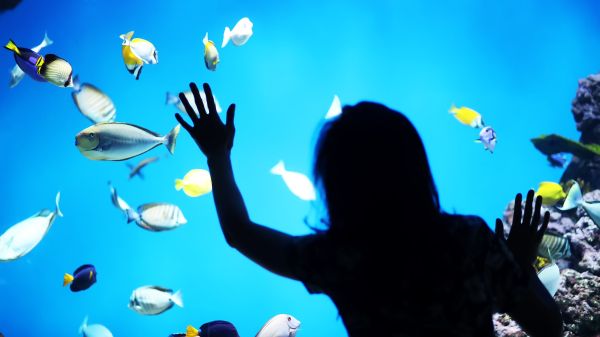Expanding Autism Inclusion in Zoos and Aquariums

Zoos and aquariums strive to be welcoming and inclusive spaces for science and environmental learning for people of all ages. In 2020, the Association of Zoos and Aquariums (AZA) adopted its fifth promise: “We advance diversity, equity, access, and inclusion in the profession and embed these values into AZA’s organizational culture.” As part of this commitment to cater to the needs of diverse audiences, zoos and aquariums have been working to improve the experience of visitors, staff, interns, and volunteers with autism. As science-based organizations, we wanted to approach this with research-informed practices and with the input of autistic individuals to develop best practices with them, rather than for them.
The Association of Zoos and Aquariums, in collaboration with Oregon State University’s STEM Research Center and the Vanderbilt Kennedy Center’s Treatment and Research Institute for Autism Spectrum Disorders (TRIAD) at Vanderbilt University Medical Center, received funding from the National Science Foundation to support the Modeling Zoos and Aquariums as Inclusive Communities of Science (MoZAICS) for autistic individuals project. This project focuses on developing an evidence-based framework of practices for zoos and aquariums and a community of practice of zoo and aquarium employees to support an inclusive environment for individuals with autism across the full aquarium and zoo experience, including the general visit, programs, exhibits, internships, volunteering, and employment opportunities.
The MoZAICS project strives to support the zoo and aquarium community in building more inclusive practices for autistic individuals. To inform the development of resources designed to support this goal, the Oregon State University research team completed a review of literature on inclusive practices in informal/nonformal learning settings for autistic individuals, a zoo and aquarium landscape study to assess the current state of the field and practices in place, and an autism community study to hear from autistic individuals about their experiences with zoos and aquariums and to identify inclusive practices. Study reports and findings are posted on our website as they are published. This work has provided insight into the needs of the community in order to develop an implementation guide that will support zoos and aquariums in their journeys toward greater inclusion for autistic individuals.
Developing a Toolkit for Inclusivity
Many zoos and aquariums face barriers to inclusion and are looking for more support and resources in this work. The All-Access Inclusion Network led by TRIAD—the Autism Institute at Vanderbilt Kennedy Center (VKC)—has been working for over a decade to promote awareness, accessibility, and inclusion of individuals with autism spectrum disorders and other intellectual and developmental disabilities and their families by building capacity throughout a community network of arts, education, athletic, and entertainment organizations. Based on their experiences collaborating with organizations and self-advocates, along with the findings from the literature reviews and studies, they’re working to develop a toolkit to support zoos and aquariums in these efforts.
This toolkit is intended to help zoos and aquariums understand inclusive practices and gain tools for supporting autistic and neurodivergent individuals who are visitors, volunteers, or employees. The toolkit may serve as a jumping-off point, offering a foundation and framework for zoos and aquariums to support science learning for individuals with autism across the full aquarium and zoo experience, including the general visit, programs, exhibits, and employment. We are sharing this toolkit with the NAAEE community as well; we hope that many of the resources will be useful beyond just the zoo and aquarium field.
How You Can Participate in Our Work
As we enter the fourth year of this grant, we are focused on sharing the work and supporting the implementation of these resources. We are building a community of practice centered on this work to share our findings and resources, learn from each other, share experiences, and keep the conversation and motivation around this work active.
We’re excited to share our work with and learn from the NAAEE community, and we’re currently exploring opportunities to expand this work to other informal science learning organizations and to other types of neurodiversity beyond the autism spectrum. If you’re interested in learning more or connecting with us, please watch for updates on our website and reach out to us.
This material is based upon work supported by the National Science Foundation under Grant No. 2116026. Any opinions, findings, and conclusions or recommendations expressed in this material are those of the author(s) and do not necessarily reflect the views of the National Science Foundation.

